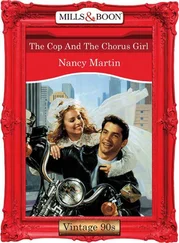That made me think of Peschel, of course, and I glanced outside.
Monk stood on the patio, where the edge met the wet, freshly cut grass, staring at the chair and the pool on the other side of the fence. There was still a puddle of water where Peschel’s body had lain on the concrete.
The coroner’s assistants wheeled the gurney with the body bag into the house and through the family room to the front door. I was glad Carol missed that but I was sure that the neighbors outside got a thrill when the body bag came out. People love to crane their necks to see body bags as long as it’s not one of their loved ones zipped up inside of it.
I went to the refrigerator to look for honey. The doors of the appliance were covered with family photos, school art projects, grocery coupons, and her appointment calendar, all stuck in place with letters-of-the-alphabet magnets. My refrigerator was also covered with stuff, but in my case it was family photos, reminder notes for me or Julie to each other or to ourselves, and interesting newspaper clippings that I’d put up for Julie or that she put up for me.
What is it about the refrigerator that makes it the communications center and scrapbook for families? Or is it because it’s a place that everyone in the household is bound to go at least once or twice during the day? Or is it just because it’s a big, blank metal surface?
You can tell a lot about a family by what they stick on their refrigerator. For example, there’s nothing on Monk’s. It’s so clean and shiny that you can use it like a mirror.
I found a bottle of honey in the fridge, put a dollop of it in the tea, then set the cup on the counter with a spoon and the sugar bowl.
Carol came down the hall in a bathrobe and slippers and took a seat on one of the bar stools. She wrapped her hands around the cup of tea, blew on it, and took a sip.
She didn’t say anything and I didn’t try to make conversation. What was there to talk about? Carol seemed lost in her mourning or, as Stottlemeyer suspected, she was in shock. Who could blame her?
I looked outside again and saw Monk squatting on the patio, picking up something with tweezers and putting it in the palm of his other hand.
I went outside on the pretense of seeing what Monk was up to, not that I explained myself to her. It was just the motivation behind my performance as I left the kitchen. The truth was I felt awkward standing there watching Carol drink her tea in misery and needed to escape.
I looked down at him. “What are you doing?”
“I thought I’d help Carol out by cleaning up this big mess.”
All I saw were a few blades of cut grass and some white fertilizer pellets.
“If that’s your idea of a big mess, then I’m never letting you in my house again.”
“Do you have a Baggie?” he asked.
I reached into my purse and gave him one of the tiny plastic bags I carry with me for his used wipes or any evidence that he collects.
He emptied his hand into the bag and then stood up, nodding to himself.
“This will take some of the pressure off of her,” he said, sealing the bag. “One less thing for her to worry about.”
I took the Baggie from him and handed him a wipe before he could ask.
Stottlemeyer, the Mill Valley cops, and the coroner broke their huddle like a football team ready to make their play. Stottlemeyer came over to us and the others left.
“The coroner says it looks like Bill banged the back of his head on the coping when he jumped into the pool,” Stottlemeyer said. “He was probably out cold when he hit the water.”
“At least he didn’t suffer,” I said.
The captain nodded and looked back at Carol. “Maybe this is a blessing.”
“How?” I asked.
“I’d rather die than lose my mind in front of my kids,” Stottlemeyer said. “Bill wouldn’t have wanted to end up in his daughter’s kitchen, serving imaginary drinks and calling cops with tips on crimes that happened ten years ago. Maybe he had a rare moment of clarity and decided to put an end to his torment and hers while he still could.”
“You’re projecting. You were uncomfortable watching him replay scenes from his old life but that doesn’t mean that he was suffering,” I said. “He seemed happy to me.”
“If I end up sitting at a card table in my son’s garage believing that I’m in my office, running Homicide again, you have my permission to shoot me.” Stottlemeyer looked back at Carol, sitting at the counter in the kitchen. “I’d better go talk to her. Get some rest, Monk. You look like you need it.”
Monk nodded and we left through the side yard, following a path through a vegetable garden.
I was tired, too. It was a lot of death for one day and it was only the early afternoon.
The first thing I did when we got to Monk’s place was to take that rolling file drawer and wheel it out the door to the Lexus.
“Where are you going with that?” he exclaimed, chasing after me to the street.
“I’m taking it home,” I said.
“But the day isn’t over yet.”
“It is for you,” I said, opening the lift-back on the SUV. “You worked all night, so you get to take the rest of the day off.”
“I don’t want to take the rest of the day off.”
“Too bad,” I said. “You’re going to. You’ll thank me later.”
I collapsed the legs and slid the file drawer right into the car. That rolling drawer was handy. I thought about getting myself one for bringing groceries into the house. Instead of three trips to the car, I could do it in one.
“What about you?” Monk asked.
“What about me?”
“You didn’t work all night,” he said.
I stopped and turned to face him. “I think I deserve an afternoon off, too.”
“Why?”
“On general principle,” I said. “What do you care? Technically, you aren’t the one paying me anymore.”
He did a little double take. “I’m not?”
“Intertect is paying me,” I said.
He smiled. I did, too. I think that was the first moment that he realized how great this job was. So I decided to drive the point home.
“Not only that, Mr. Monk, but they are paying for Dr. Bell, too.”
“So, I could see him four days a week and it would be absolutely free.”
“For you, yes. Not for Slade. But I’m sure he’d consider it a small price to pay for keeping you happy and productive.”
Monk’s smile got bigger. “I know how to spend the rest of the day.”
I groaned. I didn’t have to be a deductive genius to see what he had in mind.
“What makes you think Dr. Bell has any openings today?”
“If he doesn’t, I’ll just sit in his office and catch him between sessions.”
“He’s going to love that,” I said.
“I know,” Monk said.
I dropped Monk off at Dr. Bell’s office, told him to call me when he was ready to be picked up, and I sped off before he could think of a reason for me to spend the afternoon with him in the waiting room.
I went home, left the file drawer in the back of the Lexus, and caught up on some very important loafing around.
You’d think I’d be inured to death after all the years I’d spent working for Monk. And I was, to a degree. I didn’t turn away anymore from the victims of violent death. I could study a corpse alongside Monk, Stottlemeyer, and Disher without flinching or feeling sick. But after seeing a particularly bloody murder and a tragic drowning death I needed to decompress.
All that death was a heavy load, emotionally and visually, to carry around. It wasn’t just the dead bodies that got to me; it was everything that went along with it-like meeting a mobster in jail, facing an unrepentant murderer on her doorstep, and comforting the heartbroken, guilt-stricken loved ones of the dead.
Читать дальше
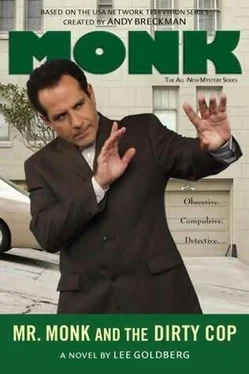


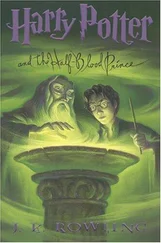
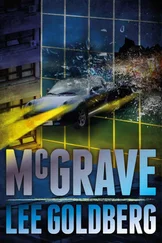
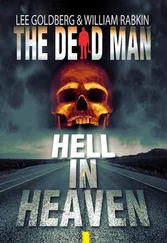

![О Генри - Фараон и хорал [The Cop and the Anthem]](/books/415669/o-genri-faraon-i-horal-the-cop-and-the-anthem-thumb.webp)




